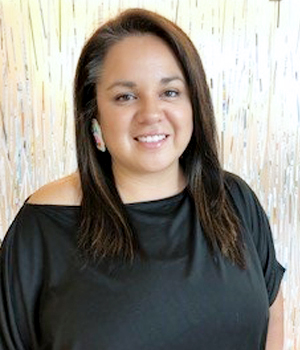Feature: Walking two paths
By Emily Leighton, MA'13
Jessica Hill, MPH’19, shares her story of walking two paths – balancing the Westernized education system and the demands of the modern world with her culture and traditional way of living.
As a member of the Mohawk Nation, Hill grew up on Six Nations of the Grand River Territory, the most populated community in Canada and comprised of the six Haudenosaunee Nations – Seneca, Cayuga, Onondaga, Oneida, Mohawk and Tuscarora.
“My community is at the heart of who I am,” she said. A graduate of the Master of Public Health (MPH) program at Schulich Medicine & Dentistry, Hill now works with the First Nations Health Authority in BC, the first and only provincial health authority of its kind in Canada. The organization supports more than 200 diverse First Nations communities across BC as a health and wellness partner and focuses largely on community-based services.
A graduate of the Master of Public Health (MPH) program at Schulich Medicine & Dentistry, Hill now works with the First Nations Health Authority in BC, the first and only provincial health authority of its kind in Canada. The organization supports more than 200 diverse First Nations communities across BC as a health and wellness partner and focuses largely on community-based services.
She draws on lessons from the MPH program regularly in her role, from research and knowledge exchange to managing health policy and organizational planning.
“I use the two-eyed seeing approach across my work in public health,” she said. “I leverage my community experiences and cultural ways of knowing, recognizing that I also learn and work in a Westernized system.”
During the COVID-19 pandemic, Hill was redeployed for four months to work alongside Emergency Management BC as a First Nations Liaison Officer with the Provincial Regional Emergency Operations Center (PREOC), coordinating pandemic response efforts for BC First Nations across the province.
Earlier this year, Hill participated in a virtual panel discussion hosted by Schulich Medicine & Dentistry in partnership with the Six Nations Polytechnic STEAM Academy, a technology-rich secondary school located in Brantford, Ontario. The event aimed to inspire young people to pursue careers in health care. As a Western alumna and panellist, Hill spoke about her personal connection to Six Nations and her journey as a student through high school and university.
“I wanted to inspire the Indigenous students participating to pursue their interests and show them that it’s okay if our path changes based on our experiences. I was once where they were sitting and had no idea what I wanted to do. As I found my journey forward, it has been humbling and rewarding to be able to represent First Nations voices and influence the health care system,” she said. “I also shared the opportunities that exist in health care for employment – it’s not just a narrow route to be a physician or a nurse, there are many directions and paths they can follow to make a difference for people.”
Looking to the future, Hill is planning to pursue PhD studies, with an interest in exploring mental health and wellness in First Nations communities during and after the pandemic using a participatory-action research framework. “It’s important that communities lead the research, that the outcomes are tangible and useful for implementation, and their voices are accurately represented in academia,” she said.
Hill is candid about her own mental health struggles as a young adult. The transition from high school to university was a particularly challenging period, as she adjusted to a new academic setting. “It was culture shock,” she explained.
Arriving at Western as an undergraduate health sciences student, Hill found a strong sense of community through the Office of Indigenous Initiatives. “As I progressed with my education, I felt more and more removed from who I am and where I come from,” she said. “The Indigenous Student Centre gave me the opportunity to meet others who understood the experience of walking these two paths.”
She says continuing to learn about Mohawk customs, ceremonies and language is also a source of inspiration and pride. “Learning more about my history and culture gives me strength,” she said. “Kanien˺kéha kateweiénhstha, which means ‘I am learning the Mohawk language’.”
With her sights set on eventually moving back to Six Nations, Hill feels drawn to the close-knit community of family, friends and elders. “I want to return to my community, to use what I’ve learned to educate and make a positive difference in people’s lives,” she said. “In my heart, it’s where I belong.”









